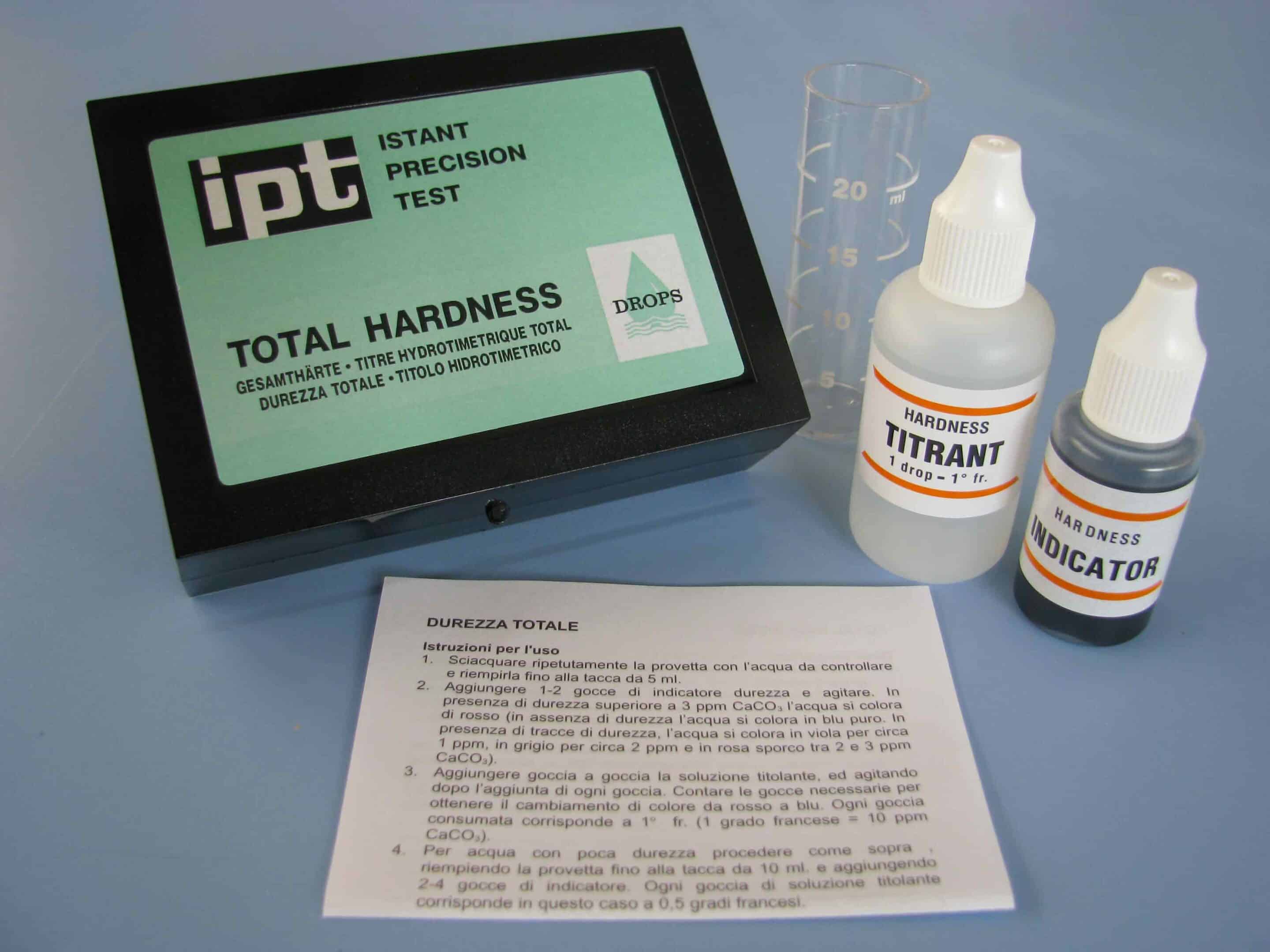| Analysis Description |
Hardness is the measurement of the amount of calcium and magnesium in water. It is measured by complexometric titration against a specific indicator.
It is customary to express the values found in °f (French degrees) or in ppm CaCO3, where 1°f corresponds to 10 ppm CaCO3. In Germany, this is referred to as 'total hardness' to distinguish it from 'carbonate hardness' (corresponding to alkalinity M) and is expressed in °dH (Grad deutsche Härte, or degrees of German hardness), corresponding to 10 ppm CaO. Since the ratio of CaCO3 to CaO is 100 to 56, it follows that 1°f corresponds to 0.56°dH, while 1°dH corresponds to 1.786°f. There are also English degrees of hardness, but these are not used in our country. The French call hardness TH (Titre Hydrotimetrique) and speak of total TH to indicate the sum of calcium and magnesium.
For steam generators, hardness must be measured in the feed water and at the points in the circuit where hardness can infiltrate. If there is a danger that any traces of hardness may enter the water of the steam generator, it is necessary to maintain in the latter a certain concentration of a product capable of rendering it harmless. By maintaining a sufficient concentration of such a product, e.g. a phosphate, in the generator water, and by controlling the concentration of free phosphate, it is not necessary to control the hardness, which then forms a precipitate that can be extracted by purging the sludge.
Depending on the products used to condition the generator water, hardness can be present in a complex, non-crusting form. Despite this, plant operators often feel compelled to measure the hardness in the steam generator water for additional reassurance. However, substances in the generator water can interfere with the coloring of the black indicator eriochrome, used for hardness determination, making the results appear much higher than they actually are. To conduct a reliable hardness analysis in such situations, a special additive (hardness reagent A), contained in the 'boiler hardness' kit, has been developed to neutralize these interferences in most cases. Given the variety of products used for conditioning heating systems, it is essential to conduct a practical test on a case-by-case basis.
|
| Observations |
Strictly speaking, along with calcium and magnesium, strontium and barium are also titrated; however, in normal water, the concentration of the latter is so low that it can be ignored.
IPT kits are ideal when only a few analyses need to be carried out with moderate precision. For a large number of analyses and high accuracy, we recommend HYDROCHECKs, which also cost less per analysis.
|
| Spare Parts and Accessories |
• titrant hardness, 6 bottles 25ml (Code N° 3111)
• titrant hardness 1 °f, 6 bottles 250ml (Code N° 3112)
• indicator hardness, 6 vials 15ml Code (No. 3002)
• 10 20ml vials, Code (No. 3310)
|
